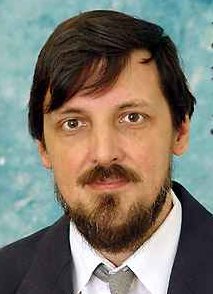Colloquium Istvan Groma
Continuum theory of dislocations:current approaches and challenges

When: Wednesday 5 February 2014
Where: Ceres building, CE0.31, TU/e campus
Abstract
Dislocations generated during the plastic deformation of crystalline materials form a complex network. Although by following the motion of the individual dislocation lines the time evolution of the dislocation system can be studied by computer simulation up to a certain level, due to the long range nature of the dislocation-dislocation interaction the discrete dislocation dynamics simulation (DDD) is extremely computationally expensive. One may expect, however, that a continuum theory derived by a systematic coarse graining of the discrete equations can capture many mesoscopic features of the plastic response of the materials. In the first part of the talk a hierarchy of the evolution equations of the different order dislocation densities is derived. It is shown that the exponential decay of the dislocation-dislocation correlation function makes possible to apply a “local density approximation” (LDA) leading to a closed set of evolution equations of the stored and geometrically necessary dislocation densities. In the second part of the talk it is explained that the continuum theory can be derived from an appropriate functional with the standard formalism of phase field theories. This allows to couple the dislocation evolution to other phenomena like solute atom diffusion. Finally it is shown that for certain problems one has to step beyond LDA.